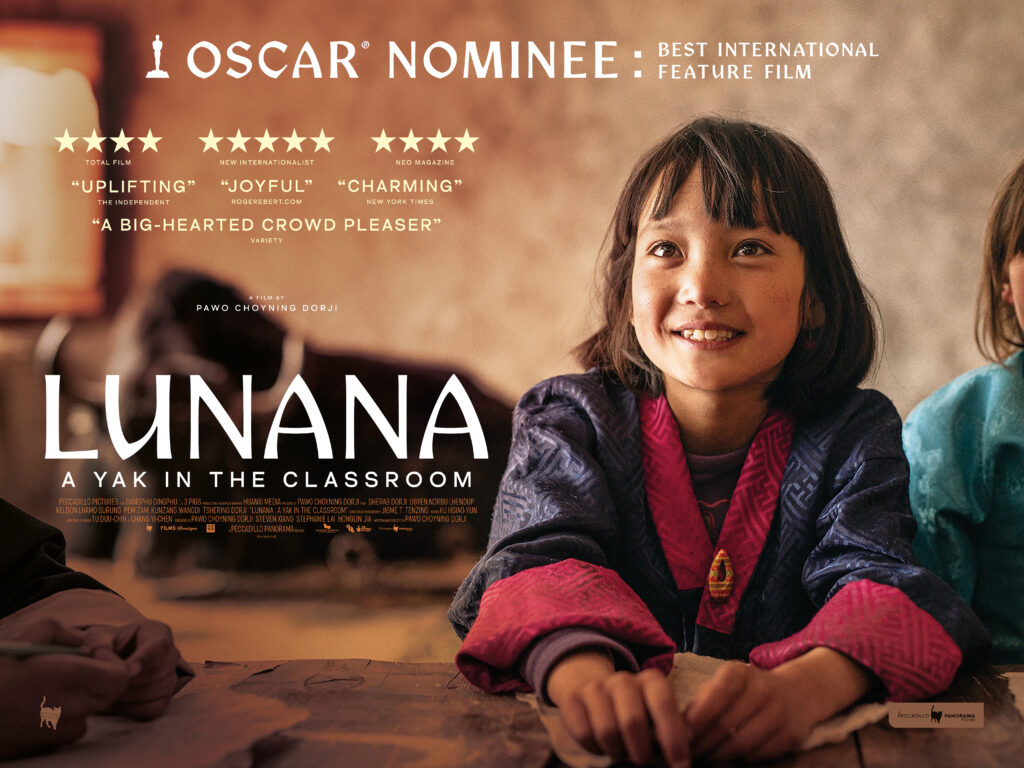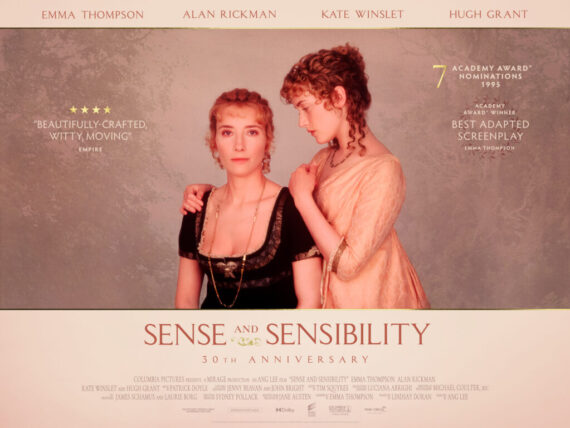A winner of multiple awards, and nominated for Best International Feature at the 2022 Oscars, Lunana: A Yak in the Classroom is both a charming tale of self-discovery, and an unsentimental look at life in contemporary China.
Written and directed by Pawo Choyning Dorji, Lunana centres on a young man, Ugyen (played by Sherab Dorji). He lives in Bhutan with his grandmother, but dreams of life elsewhere. With a few months left to complete of his National Service, he is an aspiring singer (cutting quite the dash at the open mic night) and wants to move to Australia.
His National Service has seen him working as a teacher. His heart’s not in it. His assessor even suggests his attitude is becoming a problem. She dispatches him to his last teaching post, a school in a remote Himalayan village, Lunana. Ugyen is greeted warmly by the villagers (population: 56), but he is dismayed to find that they are without basic amenities including electricity (his beloved iPod is on pause). This is a village that is fully self-sustainable, by necessity rather than choice. Their main industry is Yak farming, but the eagerness with which the villagers invite Ugyen into their lives, suggests a populace that understands the value of a good education.
Such is the poverty in the village, that the school doesn’t even have a blackboard. Ugyen is horrified, and insists on being taken back to Bhutan. But as he meets the children, including their bright and charismatic class captain (Pem Zam), he starts to understand what he can offer them. He begins to settle into the rhythms of village life, and he meets Saldon (Kelden Lhamo Gurung); a local girl whose knowledge and insight challenges Ugyen’s perceptions. Ugyen’s day to day routine is uncomplicated, and what is important to him begins to shift. The villagers share his love of music, but their genre is a clutch of traditional songs that thread like a motif through the film; it anchors them to their history and their geography. Lunana is beautifully situated among the Himalayan highlands, and Pawo Choyning Dorji wisely puts the landscape at the centre of the film. But even the mountains themselves are changing: Ugyen’s guide Michen notes how quickly the snow has been melting over the past few years. Ugyen notes it’s due to global warming. Michen has never heard of the phrase. There is a real sense of rootedness in this place, but there is also a growing awareness that the outside world cannot be kept at bay forever.
Ugyen finds himself bonding with the children, who are eager students. As a mark of appreciation, the village elders gift him his very own Yak. Ugyen assumes the beast will live outside, but no. It is so revered, it must live indoors. It wouldn’t do for the Yak to get too cold. Norbu, the Yak in question, is a gentle giant who settles into classroom life with ease. He sits patiently chewing some leaves, as the children learn their times tables.
While the scenes with the children are exuberant and joyful; the film is careful not to sugarcoat their way of life. There is an unblinking gaze narrowed on the institutional neglect: China may insist on education for every child, but despite its remoteness, their village has no kind of medical facility. One of the villagers shows Ugyen a picture of his late wife, who has died in childbirth. The isolation is depicted from two perspectives: while Saldon declares her love for Lunana, Pem Zam’s father drowns his loneliness in drink. The children’s parents are keen for their kids to study hard, because they want an easier life for them, not the precarious existence of a Yak herder. Education equals life elsewhere.
Lunana: A Yak in the Classroom has garnered international attention, and it’s not hard to see why. There is an honesty and authenticity to this film, and while it satirises Ugyen’s city life, it doesn’t shy away from the difficulties of living in an isolated community. Tradition is respected, but not glorified, and while progress feels inevitable, the film argues that disaffection doesn’t have to be part of the process. Suggesting there is a balance to be struck, is perhaps Lunana’s most important lesson.
By Helen Tope









Comments
No comment yet.